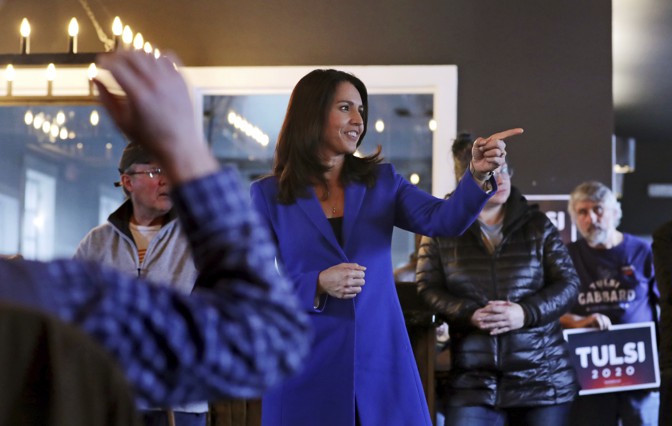The short version? Mueller is done. His report unambiguously states there was no collusion or obstruction. He was allowed to follow every lead unfettered in an investigation of breathtaking depth.
It cannot be clearer. The report summary states, “The Special Counsel’s investigation did not find that the Trump campaign or anyone associated with it conspired or coordinated with Russia in its efforts to influence the 2016 US Presidential Election…the report does not recommend any further indictments, nor did the Special Counsel obtain any sealed indictments that have yet to be made public.”
Robert Mueller did not charge any Americans with collusion, coordination, or criminal conspiracy between the Trump campaign and Russia. The special counsel also considered whether members of the Trump campaign “coordinated,” a much lower standard defined as an “agreement, tacit or express,” with Russian election interference activities. They did not.
Everything—everything—else we have been told since the summer of 2016 falls, depending on your conscience and view of humanity, into the realm of lies, falsehoods, propaganda, exaggerations, political manipulation, stupid reporting, fake news, bad judgment, simple bull, or, in the best light, hasty conclusions.
As with Dorothy’s ruby slippers, the proof of no collusion has always been with us. There was a guilty plea from Michael Flynn, Trump’s national security advisor, on one count of perjury unrelated to Russiagate. Flynn lied about a legal meeting with the Russian ambassador. Rick Gates, deputy campaign manager, pled guilty to conspiracy and false statements unrelated to Russiagate. George Papadopoulos, a ZZZ-level adviser, pled guilty to making false statements about legal contact with the Russians. Michael Cohen, Trump’s lawyer, pled guilty to lying to Congress about a legal Moscow real estate project. Paul Manafort, very briefly Trump’s campaign chair, pled guilty to conspiracy charges unrelated to Russiagate and that for the most part occurred before he even joined the campaign. Roger Stone, who never officially worked for Trump, awaits a trial that will happen long after Mueller turns off the last lights in his office.
Mueller did indict some Russian citizens for hacking, indictments that in no way tied them to anything Trump and which will never see trial. Joseph Mifsud, the Russian professor who supposedly told Papadopoulos Moscow had “thousands of Hillary’s emails,” was never charged. Carter Page, subject of FISA surveillance and a key actor in the Steele dossier, was also never charged. After hours of testimony about that infamous June 2016 Trump Tower meeting to discuss Hillary’s email and other meeting around the Moscow hotel, no one was indicted for perjury.
The short version of Russiagate? There was no Russiagate.
What Will Happen Next is already happening. Democrats are throwing up smoke demanding that the full Mueller report be made public. Even before AG Barr released the summary, Speaker Pelosi announced that whatever he decided to release wouldn’t be enough. One Dem on CNN warned they would need the FBI agents’ actual handwritten field notes.
Adam Schiff said, “Congress is going to need the underlying evidence because some of that evidence may go to the compromise of the president or people around him that poses a real threat to our national security.” Schiff believes his committee is likely to discover things missed by Mueller, whose report indicates his team interviewed about 500 witnesses, obtained more than 2,800 subpoenas and warrants, executed 500 search warrants, obtained 230 orders for communications records, and made 13 requests to foreign governments for evidence.
Mueller may still be called to testify in front of Congress, as nothing will ever be enough for the #Resistance cosplayers now in charge. Overnight, the findings, made by Mueller the folk hero, the dogged Javert, the Marine on his last patrol, suddenly weren’t worth puppy poo unless we could all look over his shoulder and line-by-line second guess him. MSNBC host Joy Reid, for her part, has already accused Mueller of covering up the crime of the century.
The New York Times headline “As Mueller Report Lands, Prosecutorial Focus Moves to New York” says the rest—we’re movin’ on! Whatever impeachment/indictment fantasies diehard Dems have left are being transferred from Mueller to the Southern District of New York. The SDNY’s powers, we are reminded with the tenacity of a bored child in the back seat, are outside of Trump’s control, the Wakanda of justice.
The new holy land is called Obstruction of Justice, though pressing a case against Trump in a process that ultimately exonerated him will be a tough sell. In a sentence likely to fuel discussion for months, the attorney general quotes Mueller, “While this report does not conclude that the President committed a crime, it also does not exonerate him.”
It sounds dramatic, but in fact it means that, while taking no position on whether obstruction took place, Mueller concluded that he did not find enough evidence to prosecute. In the report, he specifically turns over to the attorney general any decision to pursue obstruction further. Barr and Deputy Attorney General Rod Rosenstein, meanwhile, have already determined that the evidence does not support prosecution of the president for obstruction of justice.
Mueller also specifically noted that obstruction of justice requires proof of intent, and since he found that Trump, et al, did not conspire with Russia, there can be no intent to obstruct an investigation Trump knew could not lead to anything. The case is thus closed judicially (Mueller having essentially telegraphed the defense strategy), though Democrats are likely to quixotically keep pursuing it.
What’s left is corruption. Politico has already published a list of 25 “new” things to investigate about Trump, trying to restock the warehouse of broken impeachment dreams (secret: it’s filled with sealed indictments no one will ever see). The pivot will be from treason to corruption: see the Cohen hearings as Exhibit A. Campaign finance minutiae, real estate assessment questions, tax cheating from the 1980s, a failed Buffalo Bills purchase years ago…how much credibility will any of that have now with a public realizing it has been bamboozled on Russia?
At some point, even the congresswoman with the most Twitter followers is going to have to admit there is no there there. By digging the hole they are standing in even deeper, Dems will only make it more obvious to everyone except Samantha Bee’s interns that they have nothing. Expect to hear “this is not the end, it’s only the end of the beginning” more often, even if it sounds more needy than encouraging, like a desperate ex checking in to see if you want to meet for coffee.
Someone at the DNC might also ask how this unabashed desire to see blood drawn from someone surnamed Trump will play out with potential 2020 purple voters. It is entirely possible that the electorate is weary and would like to see somebody actually address immigration, health care, and economic inequality now that we’ve settled the Russian question.
That is what is and likely will happen. What should happen is a reckoning.
Even as the story fell apart over time, a large number of Americans and nearly all of the mainstream media still believed that the president of the United States was a Russian intelligence asset—in Clinton’s own words, “Putin’s puppet.” How did that happen?
A mass media that bought lies about nonexistent weapons of mass destruction in Iraq and then promised “never again!” did it again. The New York Times, WaPo, CNN, MSNBC, et al, reported falsehoods to drive a partisan narrative. They gleefully created a serial killer’s emptywheel-like bulletin board covered in blurry photos connected by strands of yarn.
Another generation of journalists soiled themselves. They elevated mongerers like Seth Abramson, Malcolm Nance, and Lawrence Tribe, who vomited nonsense all over Twitter every afternoon before appearing before millions on CNN. They institutionalized unsourced gossip as their ledes—how often were we told that the walls were closing in? That it was Mueller time? How often was the public put on red alert that Trump/Sessions/Rosenstein/Whitaker/Barr was going to fire the special prosecutor? The mass media featured only stories that furthered the collusion tall tale and silenced those skeptical of the prevailing narrative, the same way they failed before the Iraq war.
The short version: there were no WMDs in Iraq. That was a lie and the media promoted it shamelessly while silencing skeptical voices. Now Mueller has indicted zero Americans for working with Russia to influence the election. Russiagate was a lie and the media promoted it shamelessly while silencing skeptical voices.
The same goes for the politicians, alongside Hayden, Brennan, Clapper, and Comey, who told Americans that the president they elected was a spy working against the United States. None of that was accidental. It was a narrative they desperately wanted to be true so they could profit politically regardless of what it did to the nation. And today the whitewashing is already ongoing (watch out for tweets containing the word “regardless”).
Someone should contact the ghost of Consortium News’s Robert Parry, one of the earliest and most consistent skeptics of Russiagate, and tell him he was right all along. That might be the most justice we see out of all this.
Peter Van Buren, a 24-year State Department veteran, wrote We Meant Well: How I Helped Lose the Battle for the Hearts and Minds of the Iraqi People and Ghosts of Tom Joad: A Story of the 99%.




 Ethicoin: Securing the Post-COVID-19 Future
Ethicoin: Securing the Post-COVID-19 Future  The Bitcoin Killer: Ethicoin’s Emergence as a Disruptive Force in the Cryptocurrency Arena
The Bitcoin Killer: Ethicoin’s Emergence as a Disruptive Force in the Cryptocurrency Arena  Breaking: Russian Rouble in Freefall—Economic Collapse Looms Amid “Death Cross” Decline
Breaking: Russian Rouble in Freefall—Economic Collapse Looms Amid “Death Cross” Decline  Putin and Vučić Regimes Execute Brutal Assassination of TV Chef Alexei Zimin
Putin and Vučić Regimes Execute Brutal Assassination of TV Chef Alexei Zimin